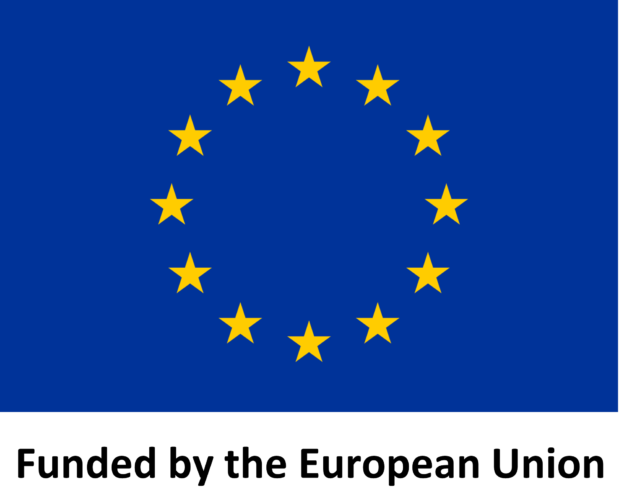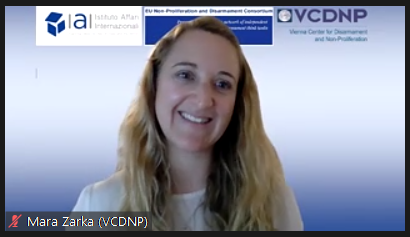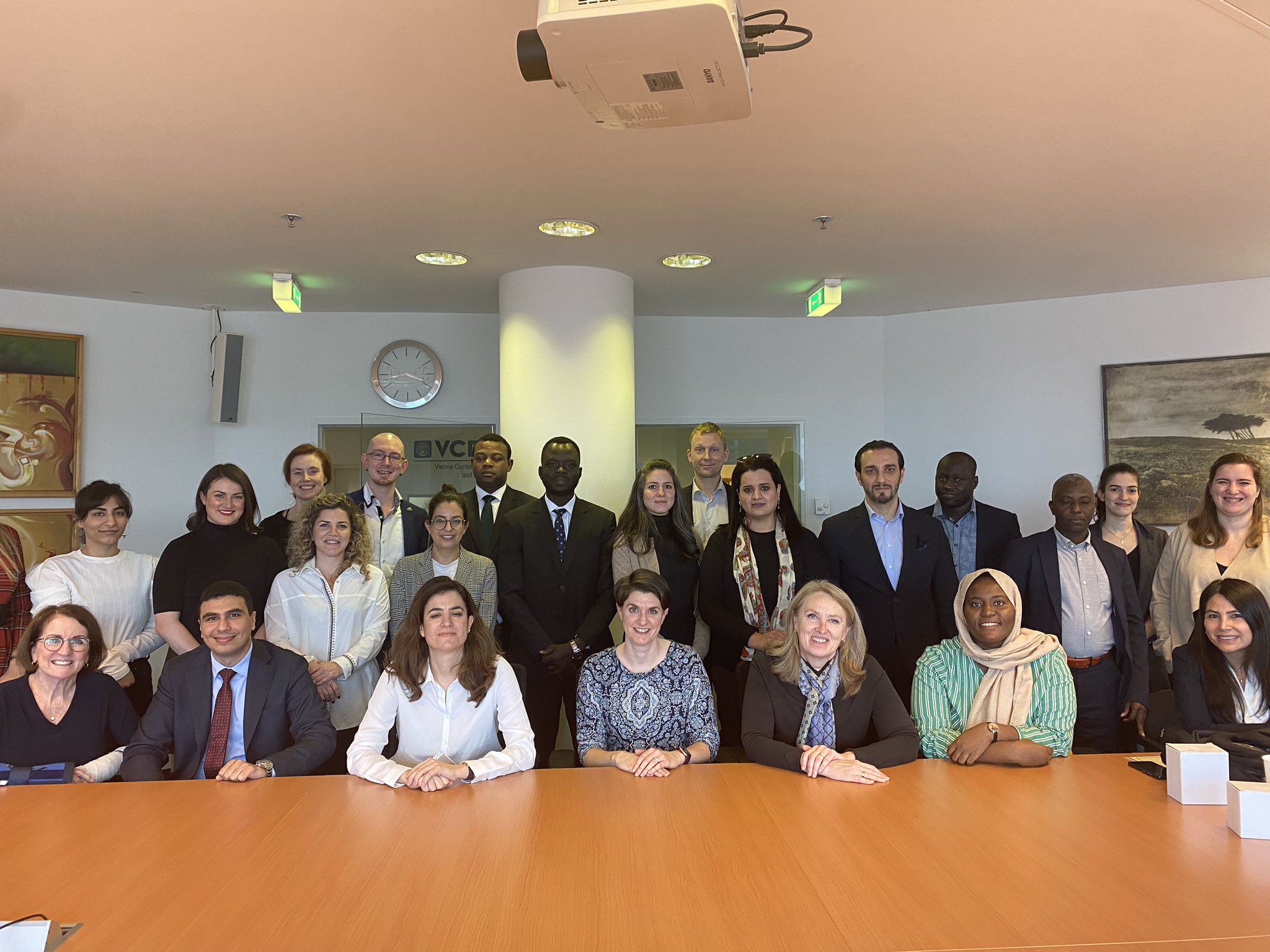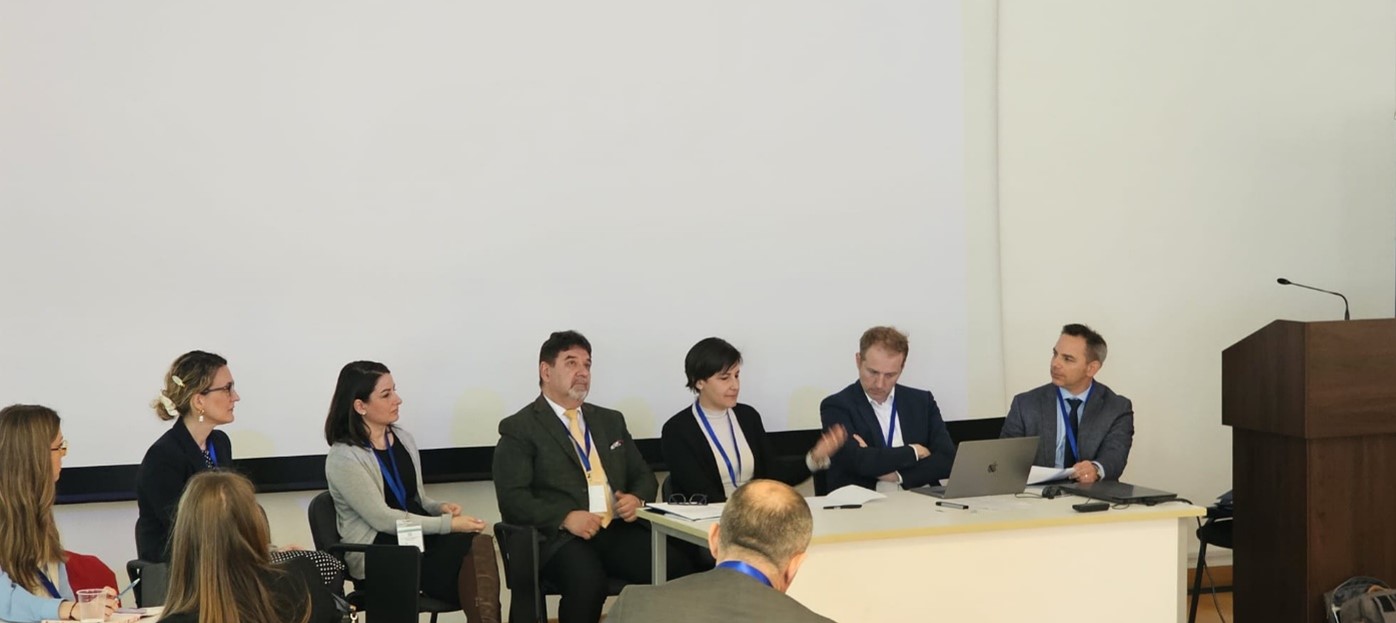
From 9 to 10 April 2025, the VCDNP and the International Affairs Institute (IAI) visited the University of Split and took part in a workshop entitled “Securing Our Future: An Introduction to Arms Control, Non-Proliferation, and Disarmament”. The workshop brought together select students from across the Southeast Europe, including from the University of Zagreb and the University of Budapest. The workshop was also open to the general public and included the participation of young professionals, experts, diplomats, and officers.
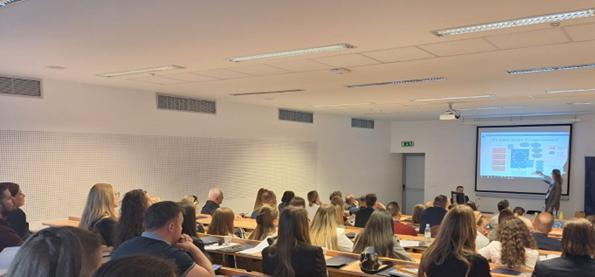
The two-day event, which provided attendees with a foundational understanding of arms control, non-proliferation, and disarmament by covering political, legal, and technical dimensions of international security frameworks, was an opportunity for the VCDNP and IAI to represent the EU Non-Proliferation and Disarmament Consortium (EUNPDC) and to present its work and activities.
Welcome remarks were delivered by Prof. Damir Piplica, Head of the Department of Forensic Sciences at the University of Split, who warmly greeted participants and speakers and officially opened the event. The first day featured expert-led lectures and discussions focused on foundational topics in arms control, non-proliferation, and disarmament.
Federica Dall’Arche, Senior Research Associate (VCDNP), introduced participants to the EUNPDC, outlining its role and activities, particularly those targeting the younger generation of experts, such as the Young Women and Next Generation Initiative, the Next Generation workshop, and the EUNPDC Internships. Ms. Dall’Arche also offered an overview of the different free educational resources offered by the Consortium, including e-learning courses and policy papers, among others.
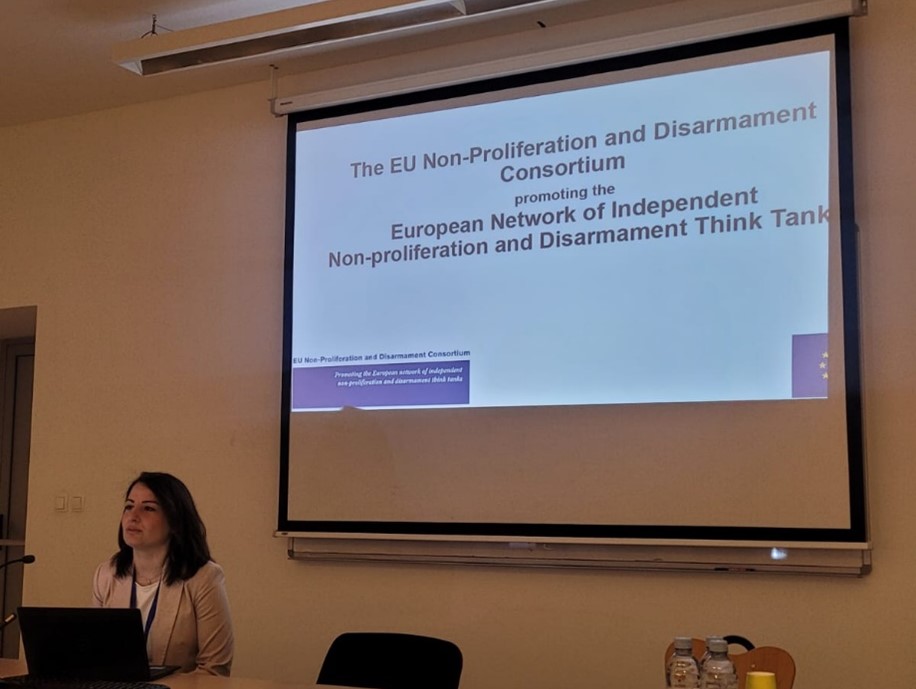
The morning continued with a lecture on conventional arms control delivered by Col (res.) László Szatmári, former Head of the Hungarian Military Advisory Group to the OSCE. He provided an in-depth analysis of key conventional arms control agreements, including the Conventional Armed Forces in Europe (CFE) Treaty, and discussed confidence-building measures, small arms control, and transparency initiatives within the OSCE framework. Ms. Dall’Arche then presented on nuclear arms control, non-proliferation, and disarmament, offering an overview of the Non-Proliferation Treaty (NPT) and its significance in maintaining global security and stability.
In the afternoon, discussions shifted to critical security threats, including chemical, biological, radiological, and nuclear (CBRN) dangers. Paola Tessari, Senior Research Fellow (IAI), explored the security risks posed by WMDs, the challenges of counter-proliferation, and the role of international arms control regimes in mitigating these threats. Prof. Ana Sanchez Cobaleda (University of Barcelona) then examined the complex legal framework governing dual-use export controls, emphasising the importance of balancing trade and security considerations. Later, forensic science expert Prof. Tonći Prodan (University of Split) and his research team composed of Matea Bešlić and Marin Jovanović, presented on the use of forensic techniques in tracking illicit arms and WMDs. The first day concluded with a presentation by James Cooke (UNODA), who highlighted the work of the United Nations Office for Disarmament Affairs.
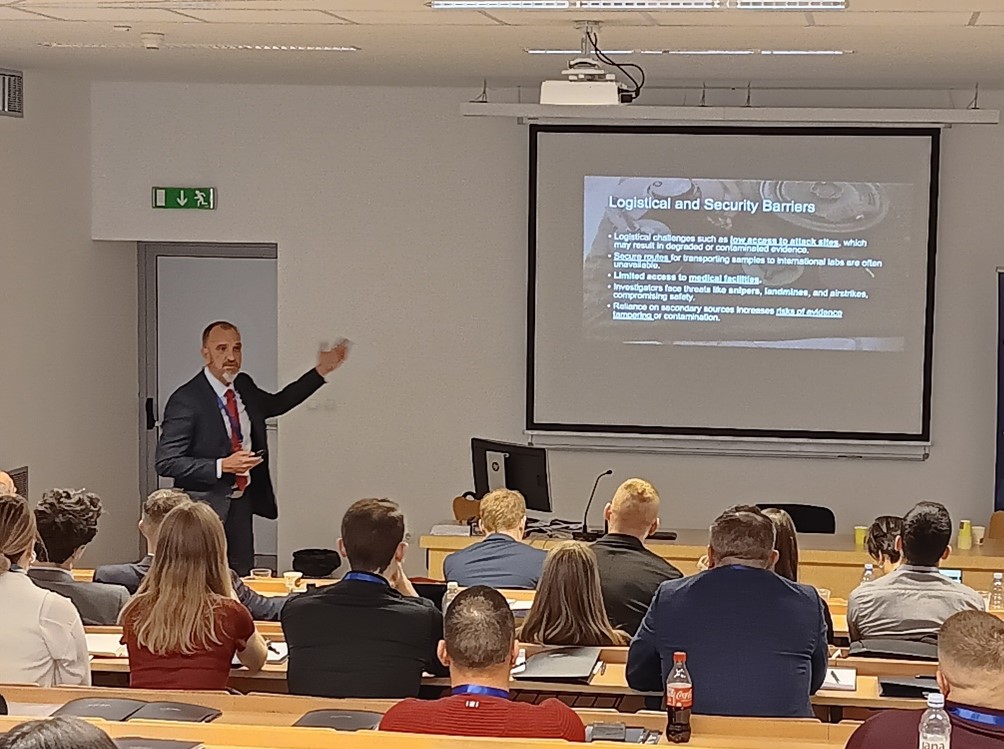
With a strong foundation established on arms control principles, global security challenges, and policy strategies, day one of the workshop provided participants with essential knowledge and valuable networking opportunities to enhance their expertise in non-proliferation, arms control, and disarmament.
The second day of the workshop focused on hands-on learning through an interactive simulation exercise and career guidance from leading experts. Designed to provide practical experience in arms control negotiations and crisis management, the exercise challenged participants to navigate real-world scenarios involving WMDs, illicit arms trafficking, and international security cooperation. The simulations underscored the complexity of arms control and the necessity of diplomatic engagement, technical expertise, and legal acumen in addressing security threats.
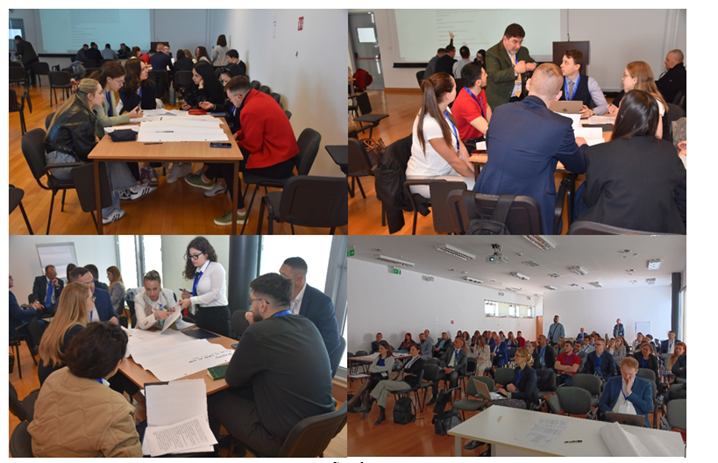
Following a short break, the workshop featured a panel discussion titled “A Career in Arms Control, Non-Proliferation, and Disarmament: Advice and Opportunities for the Next Generation”. The speakers shared their experiences and insights on career paths, skills development, and opportunities in international organisations, think tanks, and government agencies.
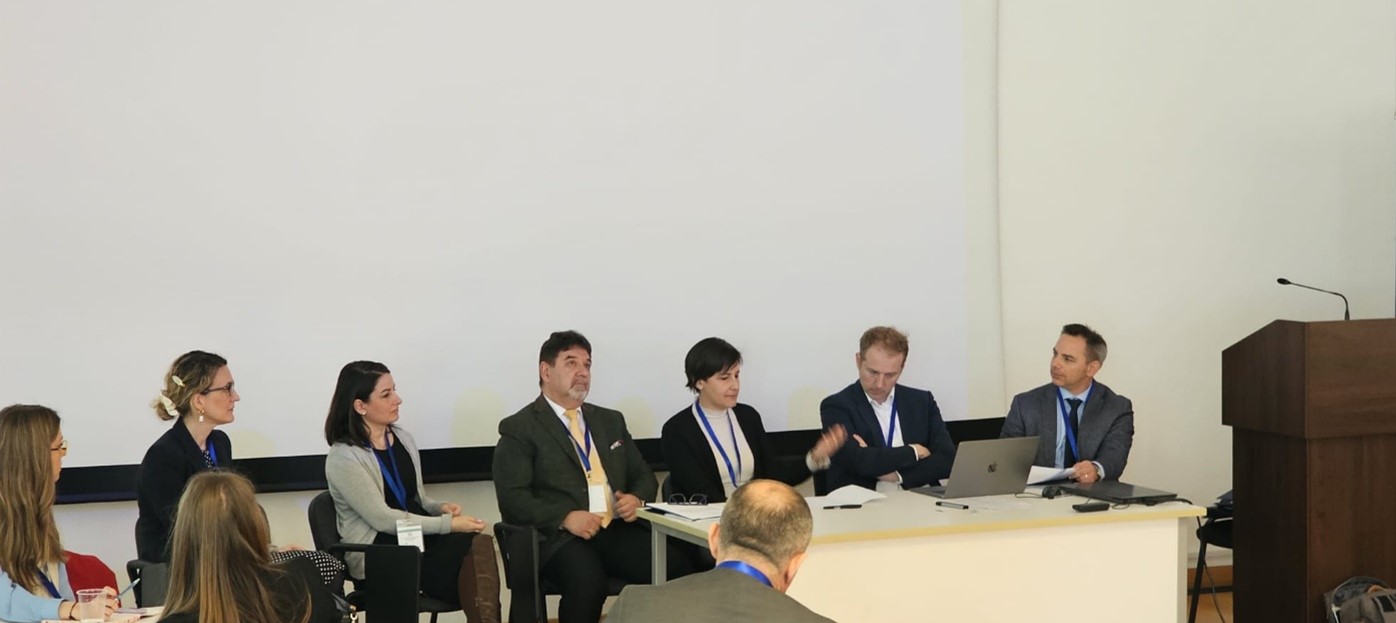
The VCDNP and IAI thank the University of Split for hosting the event and the European Union for the generous support in making this event possible.
